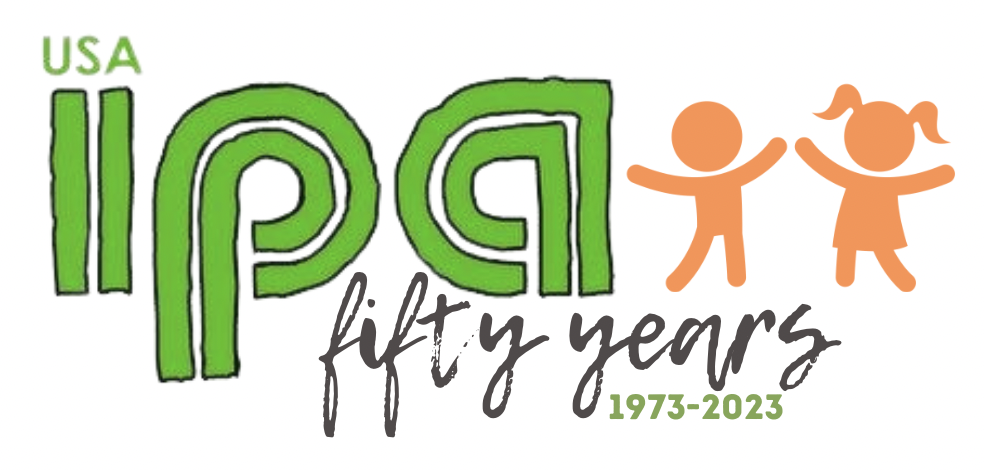ALARMING TRENDS AFFECTING CHILDHOOD
IPA is deeply concerned by a number of alarming trends and their negative impact on children’s development:
• Society’s indifference to the importance of play.
• Overemphasis on theoretical and academic studies in schools.
• Increasing numbers of children living without adequate provisions for survival and development.
• Inadequate environmental planning, which results in a lack of basic amenities, inappropriate housing forms, and poor traffic management.
• Increasing commercial exploitation of children, and the deterioration of cultural traditions.
• Lack of access for third world women to basic training in childcare and development.
• Inadequate preparation of children to cope with life in a rapidly changing society.
• Increasing segregation of children in the community.
• The increasing numbers of working children and their unacceptable working conditions.
• Constant exposure of children to war, violence, exploitation and destruction.
• Overemphasis on unhealthy competition and “winning at all costs” in children’s sports.
Proposals for Action
The following proposals are listed under the names of government departments having a measure of responsibility for children:
Health:
Play is essential for the physical and mental health of the child.
• Establish programs for professionals and parents about the benefits of play from birth onwards.
• Ensure basic conditions (nutrition, sanitation, clean water and air) which promote the healthy survival and development of all children.
• Incorporate play into community programs designed to maintain children’s physical and mental health.
• Include play as an integral part of all children’s environments, including hospitals and other institutional settings.
Education:
Play is a part of education.
• Provide opportunities for initiative, interaction, creativity and socialization through play in formal education systems.
• Include studies of the importance of play and the means of play provision in the training of all professionals and volunteers working with and for children.
• Strengthen play provision in primary schools to enhance learning and to maintain attendance and motivation.
• Reduce the incompatibilities between daily life, work and education by involving schools and colleges, and by using public buildings for community play programs.
• Ensure that working children have access to play and learning opportunities outside of the system of formal education.
Welfare:
Play is an essential part of family and community life.
• Ensure that play is accepted as an integral part of social development and social care.
• Ensure that play is part of community-based services designed to integrate children with physical, mental or emotional disabilities into the community.
• Promote measures that strengthen positive relationships between parents and children.
• Provide safe play environments that protect children against abduction, sexual abuse and physical violence.
Leisure:
Children need opportunities to play at leisure.
• Provide time, space, materials, natural settings, and programs with leaders where children may develop a sense of belonging, self-esteem, and enjoyment through play.
• Enable interaction between children and people of all backgrounds and ages in leisure settings.
• Stop the commercial exploitation of children’s play, and the production and sale of war toys and games of violence and destruction.
• Encourage the conservation and use of traditional indigenous games.
• Promote the use of cooperative games and fair play for children in sports.
• Provide all children, particularly those with special needs, with access to a diversity of play environments, toys and play materials through community programs such as preschool play groups, toy libraries, and play buses.
Planning:
The needs of the child must have priority in the planning of human settlements.
• Ensure that children and young people can participate in making decisions that affect their surroundings and their access to them.
• When planning new, or reorganizing existing developments, recognize the child’s small size and limited range of activity.
• Disseminate existing knowledge about playfacilities and play programs to planning professionals and politicians.
• Oppose the building of high-rise housing and provide opportunities to mitigate its detrimental effects on children and families. Enable children to move easily about the community by providing safe pedestrian access through urban neighborhoods, better traffic management, and improved public transportation.
• Increase awareness of the high vulnerability of children living in slum settlements, tenements, and derelict neighborhoods.
• Reserve adequate and appropriate space for play and recreation through statutory provision.
